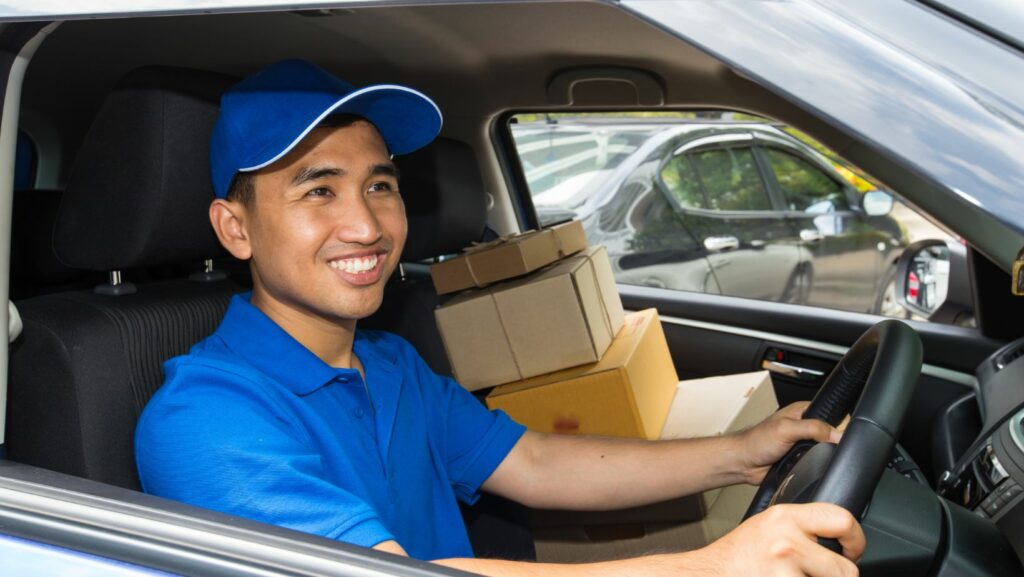
Finance Tips For Delivery Drivers Starting Out
Starting out as a delivery driver involves more than just getting behind the wheel and driving. Managing finances effectively is crucial to ensure sustainability and profitability in the long run. Here are some comprehensive finance tips for delivery drivers who are just starting out:
Create a Detailed Budget
Start by estimating your monthly income based on your expected deliveries and tips. Then, list all your expenses, including fuel, vehicle maintenance, insurance, food, and other personal expenses. Budgeting apps like Mint or YNAB (You Need a Budget) might be useful, but find a way to work out a budget that suits you so that you can easily keep it up and stick to your financial plan.
Set Aside Money for Taxes
As an independent contractor, taxes aren’t automatically deducted from your paychecks. It’s essential to set aside money regularly to cover your tax liabilities. A good rule of thumb is to save around 25-30% of your income for taxes. Using a separate savings account can help you avoid spending this money inadvertently. Tools like QuickBooks Self-Employed can help you estimate your tax obligations and track deductible expenses.
Track Mileage and Expenses
Keeping accurate records is crucial for tax purposes. Apps like MileIQ or Everlance can help you track your mileage automatically. Additionally, save all receipts for fuel, vehicle maintenance, and other work-related expenses. These records can help you claim deductions and reduce your taxable income, ultimately saving you money.
Invest in a Reliable and Fuel-Efficient Vehicle
Your vehicle is your most critical asset. Investing in a reliable, fuel-efficient car can reduce the likelihood of breakdowns and lower your fuel costs. Regular maintenance is also essential to keep everything in good working condition. Setting aside some income to create a fund for a maintenance can help cover unexpected repairs and routine services.
Optimize Your Insurance Coverage
Ensure you have the appropriate insurance coverage for your delivery work. Personal auto insurance might not cover you while working, so you may need commercial or rideshare insurance.

Shop around and compare quotes to find the best rates and coverage options. Websites like The Zebra or Policygenius can help you compare insurance policies.
Maximize Your Earnings
To increase your earnings, consider working during peak hours when demand is higher, such as weekends and evenings. Joining multiple delivery platforms can also provide more opportunities to make bids on delivery work and reduce downtime. Understanding the pay structure and incentives of each platform can help you strategize your work schedule for maximum profitability.
Manage Fuel Costs
Fuel costs can take a considerable portion of a delivery driver’s expenses. To mitigate this, leverage apps like GasBuddy to identify the most affordable fuel prices on your routes. Additionally, implementing fuel-efficient driving practices, such as avoiding rapid acceleration and maintaining consistent speeds, can significantly lower fuel consumption and save money.
Save for Downtime and Emergencies
Income can fluctuate due to various factors, such as seasonal demand and personal health. Creating an emergency fund with at least three to six months of living expenses can provide a financial cushion during slow periods or unexpected events. This fund can help you manage your finances without relying on loans, which can lead to debt.
Utilize Technology for Efficiency
Using route optimization apps like Route4Me or Waze can help you find efficient routes, reducing fuel costs and saving time. Additionally, apps like Expensify can help you track your expenses and simplify your financial management. Leveraging technology can enhance your productivity and profitability.
Plan for Retirement
You won’t have access to employer-sponsored retirement plans as an independent contractor. It’s essential to start saving for retirement early. Consider opening an Individual Retirement Account (IRA) or a Simplified Employee Pension (SEP) IRA. Contributing regularly to these accounts can help you build a substantial retirement fund over time.
Seek Professional Advice
If managing your finances feels overwhelming, consider consulting with a financial advisor. They can provide personalized advice tailored to your specific situation and help you develop a comprehensive financial plan.

Additionally, tax professionals can assist you in maximizing your deductions, ensuring compliance with tax regulations, and potentially saving you significant amounts of money. Seeking professional guidance can provide peace of mind and allow you to focus on growing your delivery business without financial stress.
Conclusion
Embarking on a career as a delivery driver demands meticulous financial planning and management. To achieve financial stability and success, consider these key strategies: develop a comprehensive budget, meticulously track your expenses, invest in a dependable vehicle, and ensure you have optimized insurance coverage. Maximize your earnings by leveraging high-demand times and platforms, manage fuel costs effectively, save for emergencies, utilize technology for efficiency, plan for retirement, and seek professional financial advice. Implementing these practices can help you manage your finances efficiently and attain long-term profitability in your delivery career.





